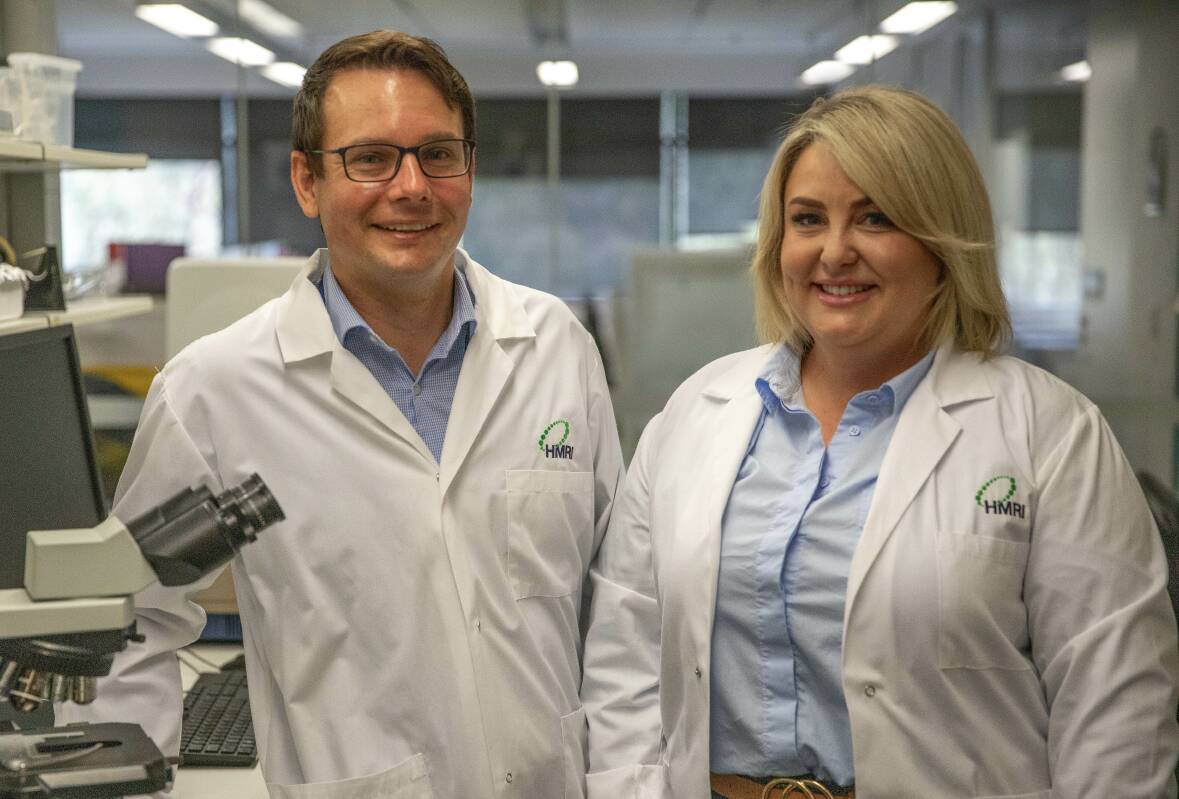
ASSISTING in recognising patterns in human DNA and data, artificial intelligence (AI) is set to help Hunter Medical Research Institute (HMRI) combat debilitating and incurable illnesses.
Made possible through a $98,700 grant from Newcastle Permanent Charitable Foundation, HMRI will be able to explore new therapies for inflammatory bowel disease and ulcerative colitis.
These conditions impact people of all ages, leading to a life of invasive procedures, long-term immune suppressant medications, and major alterations to quality of life.
HMRI and the University of Newcastle Dr Gerard Kaiko said treatments targeting the disease beyond suppressing inflammation could be key to helping patients receive completely different and better outcomes.
"My group has been researching intestinal stem cells and three-dimensional organoids in the gut, as well as the collection of millions of microbes in the gut, known as the microbiome. The microbiome is intimately linked to health and is a part of normal human biology, but when it gets out of balance it can contribute to many diseases, including IBD," he said.
Identifying therapies from the gut microbiome is a complex undertaking with huge amounts of data, which is why Dr Kaiko and his team are applying AI to research.
"We are using ChatGPT and image recognition software to identify patterns in huge datasets so we can identify new therapies," he said.
"AI can recognise patterns in enormous amounts of data that humans could never attempt, and previous computational models could not handle."
He said with humans having more than 20 trillion cells and being 99.9 per cent identical in their genetic make up, AI could help locate that 0.1 per cent difference.
"Differences that hold important clues about the causes of diseases, this is the needle in the genetic haystack," he said.
"Not only can our AI model help us find the needle - it can tell us the needle's trajectory through the haystack which helps us understand how the diseases formed, and the pathways we need to use to treat it."
While currently only researching this with IBD, Dr Kaiko said the system they have developed has potential application to many other diseases.
Newcastle Permanent Charitable Foundation Executive Officer Carly Bush, said it was inspiring to see groundbreaking research on such devastating illnesses.
"IBD is so much more than just an upset stomach. This debilitating illness can truly upend a person's life and can be fatal," she said.
"The system HMRI has developed in this project is a shining example of ways to grow biotechnology with future healthcare and it's happening right here in the Newcastle and Hunter regions."
Dr Kaiko said the funding received from Newcastle Permanent Charitable Foundation has helped define a potential microbiome therapy.
"We are now beginning to work with Industry partners in Melbourne and Japan to address how we can expand this work in the drug development process towards clinical trials," he said.







